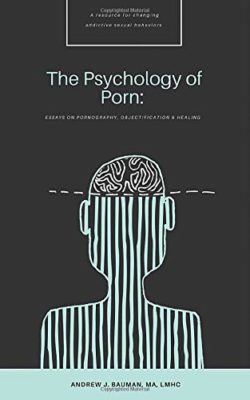By Andrew Bauman

The chances are high that your husband has looked at pornography in the past, is currently using it, or will do so in the future. Research tells us that among men ages 18 to 30, “77% look at pornography at least monthly.” Other studies suggest it’s not just young males who use porn. Men of all ages have seen it, and many use it regularly.
These statistics can be disheartening for women who know little about this world or are confused about porn’s appeal. A myriad of conflicting feelings may arise: betrayal, sympathy, rage, horror, and sadness, to name but a few. What does healthy anger look like? What do healthy boundaries look like? What do you do with your grief, numbness, or ambivalence? What about forgiveness?
Should you find yourself in such a predicament, this article will help prepare you to engage the topic with your husband and hopefully begin the road to reconciliation and healing.
First, Trust Your Gut
If you feel betrayed, it’s because you have been. You may feel sympathy because you love him and sadness because he has deeply hurt you. You may rage because you have been lied to, and you may feel as if you have been made a fool. Many women have been told that they feel too much; the passive-aggressive joke that’s never really a joke—“It must be that time of the month”—belittles and invalidates their feelings. These are calculated strategies to undermine your trust in yourself. Insecure men use these manipulative tactics because they work. Don’t trust someone else’s insults above your own intuition. It’s OK to feel all these conflicting emotions. Nothing is wrong with you. Your pain is a sign that you are courageous enough to love, and you are feeling what it means to be fully human.
Second, It’s Not Your Fault
Pornography use is not a personal attack against who you are or the goodness of your body. It’s not because something is wrong with your shape, or that your body is unsatisfying, causing your partner to look elsewhere to fulfill his desires. He is doing this because he has conditioned himself to find comfort in pornography, and often has been doing so for decades. High consumption of porn literally causes brain damage. He is running from his unaddressed woundedness; that is all.
This is where you’ll need to discern the difference between a personal betrayal of your sexual commitment and the idea that something is deficient within yourself. Oftentimes a husband who is in denial may want to project this idea onto you to avoid his own shame and responsibility. Don’t take the bait! It’s important for you not to take on what it is not yours.
If you are feeling emotionally distant from your spouse, do not immediately assume it’s because you are doing something wrong. Pornography use creates emotional distance. Pornography users often master the ability to sabotage genuine intimacy, shifting responsibility away from themselves. I remember when I was in the middle of my addiction, I was terrified to be emotionally intimate with anyone for fear of being exposed as the fraud that I was. Genuine intimacy and pornography do not mix well together; they are like oil and water—fundamentally different. It’s most likely not your fault that you and your partner are having trouble connecting emotionally; isolation is at the very core of all compulsive sexual behaviors.
Third, His Integrity Is Not Up To You
It is not your responsibility to be an accountability partner or the sole emotional support of your husband. He alone is responsible for his own integrity or lack thereof. Support and love for someone who is struggling with compulsive sexual behavior looks more like reaching your hand out to assist, rather than jumping into a raging river to attempt to save him from himself. (Learn more about differentiation here and here.) You must require truth and open, authentic engagement, but ultimately what type of sexuality and integrity he will have is up to him. If you take responsibility for his integrity, it enables his immaturity.
His work is learning to become a man and to outgrow his adolescent dependence on pornography. Your work is learning how to differentiate from your husband’s failures and create healthy boundaries, rather than enabling the dysfunction to continue. Resist turning a blind eye in willful ignorance; the truth hurts, yet it is the path to healing. I am surprised by how many women come into my office who have known what was going on but chose to remain in the dark for their own self-preservation. This posture fosters an enabling environment that allows pornography use to flourish.
As you navigate the many conflicting emotions, you must continue to offer your truth and desire to your partner; to continually bring the fullness of your voice and your fear. “Where are you?” “I am having a hard time finding you.” “I miss connecting with you.” “Are you using pornography again?” “Will you get help?” “I am lonely and not OK, so can we get help?” These are all fitting questions as you make an effort to locate your lost partner. When you bring your true self to your partner, he will be forced to face his own false self. By loving and honoring yourself more fully, setting consistent boundaries (for example, “If you continue to use pornography, lie to me about it, and do not get help for your addiction, then I will choose to pursue a legal separation.”) and insisting upon higher standards of fidelity within the relationship, you can create an environment where pornography does not flourish.
Finally, Live in Truth
This is a vital step you must take if your husband is using porn. Authenticity and truth are the kryptonite for pornography use. Pornography is based on secrets, and over time those who use pornography learn to live a duplicitous life.
I used porn regularly for nearly 13 years, and though porn hasn’t been a part of my marriage, it was part of my life while I was a pastor. People wouldn’t have known. I was smooth, and I was good at my job. Those of us who use pornography have become masters of disguise and deception, living two different lives. We eventually forget who we really are. We aren’t bad guys; we are wounded boys looking for relief from unaddressed trauma. This doesn’t by any means excuse our behavior; it simply makes sense of why when men are using pornography: They are cowards unable to offer truth to their lovers. Porn offers a quick, cheap way to escape from a reality that many men are too cowardly to face.
As a partner, will you require full truth in your marriage? Will you make no more excuses for your emotionally numb husband? Will you tell him how lonely you actually are? Will you share how deeply you miss connecting with him? Will you insist on no more secrets? Will you tell your husband about your fear that he is using pornography again—not as an accusation (though if he is wildly defensive, you have to wonder what he is hiding) but as a way for him to know you more fully? Will you refuse to give in to fear?
You are his equal, his lover and queen. He must see his own darkness and take responsibility for it for your marriage to be saved. If you are able to take these steps toward emotional courage, it will help create an environment that fosters authenticity and truth.
***

Andrew J. Bauman is Co-Founder & Director of the Christian Counseling Center: For Sexual Health & Trauma (CCC). He is a licensed mental health counselor with a Master of Arts in Counseling Psychology from The Seattle School of Theology & Psychology. He is currently working on his doctorate from Northeastern University. Andrew is the author of four books, Floating Away: A Book to Help Children Understand Addiction, Stumbling Toward Wholeness, The Psychology of Porn, and (with his wife, Christy) A Brave Lament. You can find out more about his work at www.andrewjbauman.com and www.ChristianCC.Org.
